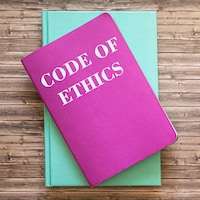Reader: Our company hired a remote employee last year. We let them go after about eight weeks. We found they were only signing in for meetings and not getting work done, taking credit for others’ work, and throwing teammates under the bus to deflect questions. When they sensed we were about to let them go, they vindictively deleted hundreds of documents in shared folders. When their company credit card statement came in, it showed nearly $5,000 worth of personal expenses from weeks before they were fired. We were able to get the money back from the credit card but did not pursue other charges.
Work Advice: Do I tell a school district we fired their new employee for dishonesty?

This person’s résumé included a previous assistant principalship, as well as over a decade of other K-12 educational experience. I recently noticed on LinkedIn that they have a new job at an elementary school, working with kids identified as needing extra help. Their LinkedIn profile history has multiple differences from the résumé they sent us — for example, it now says they were a principal rather than an assistant principal — and does not show that they worked for us.
Obviously I want to see justice served. It doesn’t feel fair that someone can get away with abusing other people the way they did. Also, as a parent, I cannot stand the idea that someone with that level of integrity is working with vulnerable kids. Part of me wants to notify the district about this person’s character, but I’m also concerned they would try to plot against me if they found out. What would you do?
Karla: I share your frustration that people can deliberately do bad things and escape the slap of justice. But I’m less certain on when it becomes our individual duty to call down that hand ourselves.
Even if you aren’t worried about the former employee retaliating against you personally, their current employer is unlikely to simply take the word of one stranger without questioning your motives and seeking corroboration. That could end up pulling you under some scrutiny. Pursuing someone else’s comeuppance rarely pays off for the pursuer, even when the pursuit is justified, so it’s reasonable to question whether the potential cost to you is worth saying something right now.
Also, if I’m reading your question correctly, you aren’t the one making the calls about hiring and firing and whether to press charges. If that’s the case, you’re unlikely to get corroboration from your employer, who has already declined to prosecute their so-called victimless crimes. (Victimless, that is, except for the companies absorbing the cost of those unpaid charges, or the rest of us paying higher prices as a result.) If contacted, your employer would probably just stick to confirming employment, title and dates of service. Without corroboration, the new employer may just dismiss your complaint as a personal smear campaign.
As for fudging facts on their résumé and LinkedIn profile, a background check should have uncovered some of those discrepancies, but chronically understaffed and underfunded educational systems may not have the resources for a detailed investigation. Since your employer filed no charges, no red flags would show up on a criminal-background check. And when it comes to omitting their two-month stint with your company, I generally advise readers to leave off short-term filler jobs that don’t contribute to their overall career narrative — with the caveat that bad behavior has a way of being found out, so they should be prepared to come clean about it.
Here’s what pinches my conscience most: As qualified educators are driven to seek better-paying, less stressful opportunities, their replacements include a higher concentration of candidates such as your ex-colleague. Petty, vindictive adults have no business being in charge of children — although my inbox indicates such people exist at all levels of academia. But then again, someone can be “bad” in an adult context and still be good with children. It’s possible your ex-colleague, as long as they’re not handling money or working remotely without supervision, can be the help those kids need.
So with all those ping-ponging counterpoints in mind, the question becomes one of probable harm. Will keeping this information to yourself allow further harm to occur? Can sharing it prevent harm from happening again?
If your ex-colleague’s past misbehavior involved abuse of children, or if their new position involves access to other people’s money, that’s a mandate for speaking up. Otherwise, I’d be inclined to give karma space and time to do its thing, and wait until it invites you to share what you know — say, for example, if you make friends with the parent of a child in the care of your former colleague.






